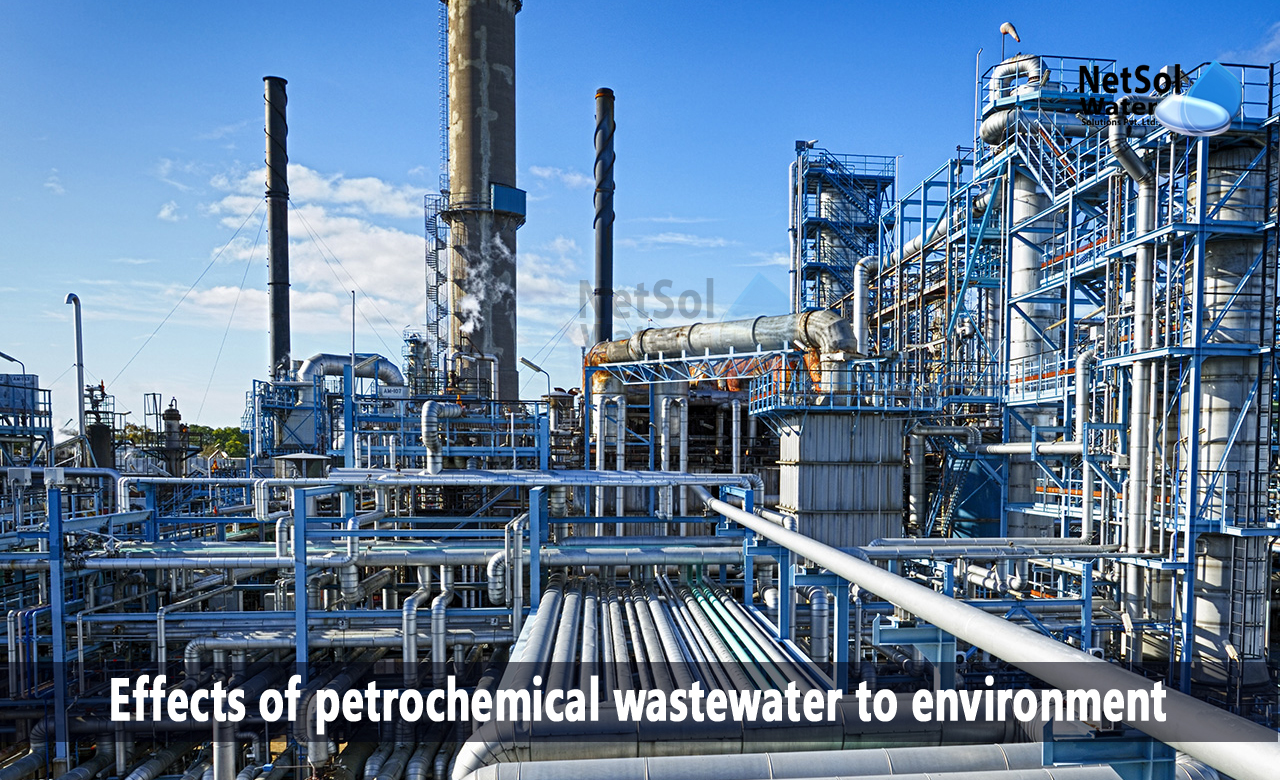The petrochemical and oil sector produces a large amount of petrochemical wastewater. The wastewater contains a variety of organic and inorganic components that must be appropriately treated, before it can be discharged into any receiving rivers. Therefore, the complexity of wastewater and the requirement for strict discharge limitations, have encouraged the creation of various effluent treatment methods.
How is petroleum wastewater created?
Wastewater can be produced by cooling systems, distillation, hydrotreating, and desalting. The composition of refinery wastewater may fluctuate based on the operational units, for different products at different times and locations. Various amounts of ammonia, sulphide, phenols, benzo, and other hydrocarbons, are typically present in such effluent.
What is a petrochemical wastewater?
It refers to wastewater from all oil-related industries. Petrochemical wastewater can be found in oilfield production, crude oil refinery plants, olefin process plants, refrigeration, energy units, and other incidental wastewaters. When it comes to biological treatment, different types of wastewater include different substances, and have varying levels of toxicity and degradability.
Types of petrochemical wastewater
Petrochemical wastewater is categorized into three types based on its origin: oilfield wastewater, petrochemical refinery wastewater, and oily wastewater.
Oilfield waste-water is generated during the extraction of crude oil from oil wells, including high concentrations of artificial surfactants and emulsified crude oil, with high COD and limited biodegradability. It contains polymer, surfactants, radioactive compounds, benzenes, phenols, humus, polycyclic aromatic hydrocarbons (PAHs), and numerous types of heavy mineral oil, which are formed during oil extraction in oil fields.
Why should wastewater from the petroleum sector be treated?
As modern society's usage of oil has expanded, so has the amount of oil/oil refinery waste produced. Among other things, the oil processing wastewater/waste contains high quantities of aliphatic and aromatic petroleum hydrocarbons. If this is released directly, it will destroy plants and aquatic life in surface and ground water sources.
Due to stringent criteria, researchers have been pushed to develop enhanced treatment facilities with high treatment efficiency, minimal maintenance, footprint, and operational costs. Biological anaerobic, anoxic, and aerobic digestion (or a combination of these), have been employed to remediate petrochemical wastewater. It is also critical to apply physicochemical approaches, to optimize the pretreatment process in order to provide adequate pretreatment wastewater, for efficient biological secondary treatment.
What are the petrochemical industry environmental effects?
The production of petrochemicals contributes to pollution of the air, water, and soil. This can have an effect on smaller systems, such as specific ecosystems, but it also has global consequences.
1: Greenhouse gases emitted during petrochemical manufacturing, for example, can contribute to global climate change.
2: Petrochemical manufacturing causes water pollution on the surface in lakes, ponds, and streams, as well as below ground in groundwater.
3: During the petrochemical manufacturing process, wastewater contaminated with sulphides, ammonia, and other compounds is created.
4: Some plants utilize wells to inject wastewater below, contaminating aquifers and groundwater, where people acquire their drinking water.
For all of the harmful effects that wastewater generated by petrochemical sectors poses, ETP or effluent treatment plant is a must-have item.
Conclusion
Petrochemical plant wastewater contains a wide range of chemicals. Treatment methods are influenced by wastewater sources, discharge requirements, and treatment efficiencies.
Pretreatment procedures are often employed to treat petroleum refinery effluent, before it is sent to an organic removal biological process. First treatment includes the removal of free oil and gross solids, the removal of dispersed oil and solids via flocculation, flotation, sedimentation, filtering, micro-electrolysis, and other processes, and increasing the biodegradability of wastewater.
Given all of the environmental implications of the petroleum sector, it is critical that ETPs be installed in such industries, to safeguard water and aquatic life.
Manufacturer of ETPs for petroleum oil refineries
Netsol Water provides a wide range of modern treatment solutions, for effluent treatment in the oil refineries, including ETPs, water softener, membrane technologies such as RO Plants, etc.
Netsol Water is Greater Noida-based leading water & wastewater treatment plant manufacturer. We are industry's most demanding company based on client review and work quality. We are known as best commercial RO plant manufacturers, industrial RO plant manufacturer, sewage treatment plant manufacturer, Water Softener Plant Manufacturers and effluent treatment plant manufacturers. Apart from this 24x7 customer support is our USP. Call on +91-9650608473, or write us at enquiry@netsolwater.com for any support, inquiry or product-purchase related query.



